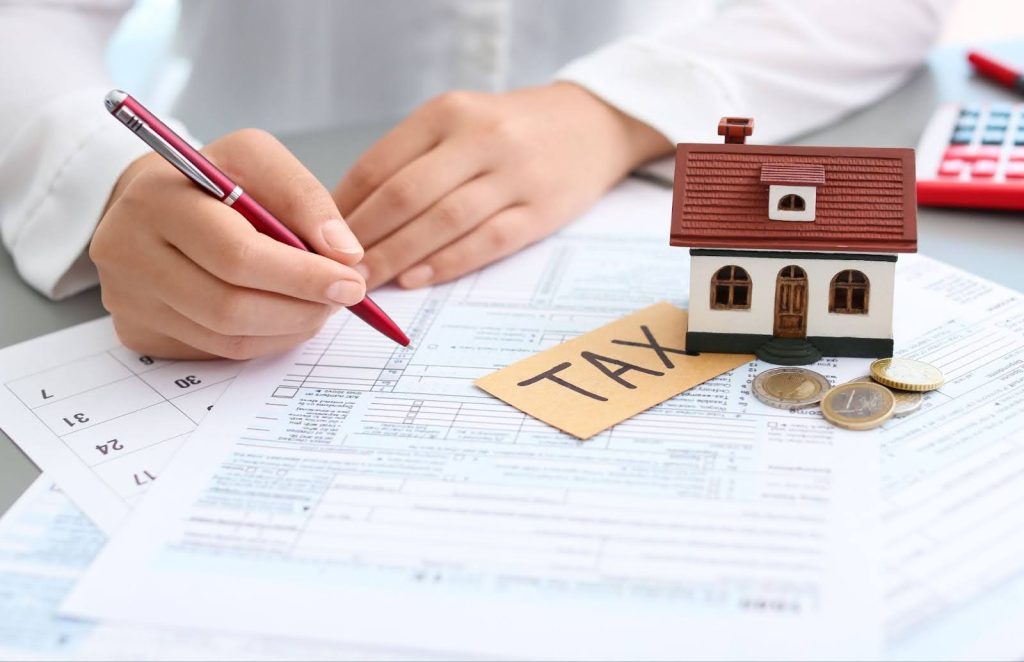Homeownership comes with a myriad of responsibilities, and maintaining a sturdy roof is undoubtedly one of the most critical. As the first line of defense against the elements, your roof plays a vital role in protecting your home and everything within it.
However, when damage occurs, roof repairs can be a significant expense. Given the high costs involved, many property owners seek ways to alleviate the financial burden, one of which is tax deductions. So, are roof repairs tax deductible?
This article will address this common concern among property owners. We’ll dive into how home improvement intersects with tax law, exploring the potential effects on your finances and your property’s long-term value. Knowing the tax implications of roof repairs can help you make informed decisions about maintaining your home while potentially maximizing your tax benefits.

Are Roof Repairs Tax Deductible?
Navigating the intersection of roof repairs and taxes can be complex as the ability to deduct these costs from your taxes depends on several factors.
Typically, roof repairs for a personal residence are not tax-deductible. However, if the property is used for rental or business purposes, these repairs may be deductible as maintenance expenses. To help clarify this often confusing topic, it’s essential to understand the various scenarios that homeowners might encounter.
Primary residence
For homeowners, can you deduct roof repairs on your taxes? Home repairs, like fixing your roof, are generally not tax-deductible since the IRS treats them as personal expenses. However, if part of your home is used for business, you may qualify for a partial deduction based on the space used. This can get complex, especially for home office situations, so consulting a tax expert is recommended for accurate guidance.
Exceptions might apply, but navigating them requires a clear understanding of tax laws to avoid mistakes. Proper documentation is crucial to support any deductions.
Rental property
Roof repairs on rental properties are usually tax-deductible as maintenance costs, helping landlords maintain rental income. Unlike major improvements, which are spread out over time, these costs can usually be deducted in the same year they’re paid.
Be sure to keep receipts and bills for tax purposes. Proper documentation ensures smooth filing and maximizes potential deductions. Consulting a tax professional can help clarify eligible expenses.
Business property
Roof repairs on business properties are typically tax-deductible as they qualify as necessary maintenance for business operations. To ensure proper tax deductions, it’s important to categorize these expenses as repairs rather than improvements. Repairs are generally deductible in the year they are paid, so be sure to keep detailed receipts and records.
Good documentation ensures accurate reporting and helps if the IRS reviews your taxes. Consulting a tax expert can also prevent misclassification. Accurate records reduce the risk of potential audits.
Improvements vs. Repairs
Repairs fix existing issues and can be fully deducted immediately for rental and business properties, like fixing leaks or replacing shingles. Improvements, however, enhance the property and must be depreciated over time, such as adding a new roof layer or using better materials.
Determining whether work is a repair or improvement can be tricky, so consult a tax expert for guidance. Proper classification impacts how you deduct these expenses and can affect your overall tax strategy. Keeping detailed records will also help in case of an audit.

Conclusion
In conclusion, navigating the tax implications of roof repairs requires a nuanced understanding of property types and tax regulations. So, are roof repairs tax deductible? Homeowners don’t benefit, but landlords and business owners have more favorable options.
The key lies in properly distinguishing between repairs and improvements, as this classification significantly impacts tax treatment. This highlights the importance of seeking professional guidance.
Keeping meticulous records of all roof-related expenses is crucial, regardless of property type. Given the complexity of tax laws, consulting with a tax professional is highly recommended. They can provide tailored advice, ensuring you maximize eligible deductions while staying compliant with IRS regulations. Understanding tax implications helps property owners make informed decisions and ease maintenance burdens.
